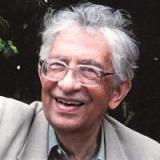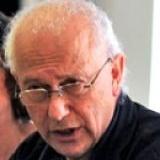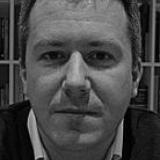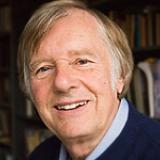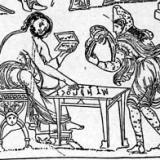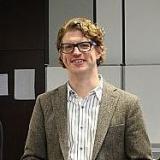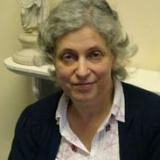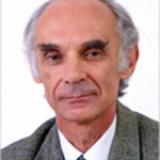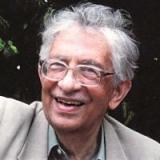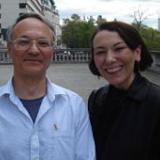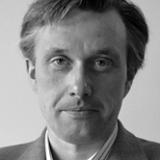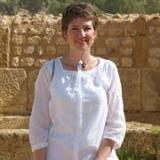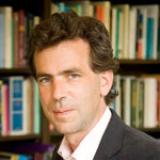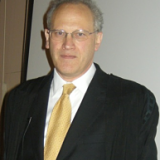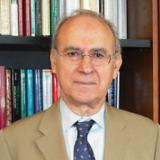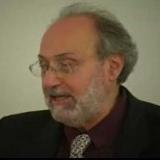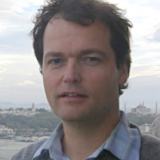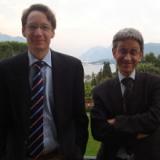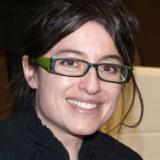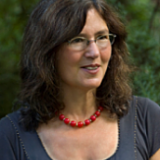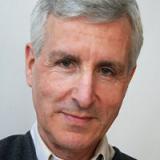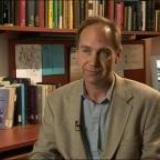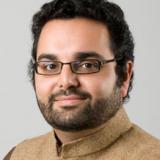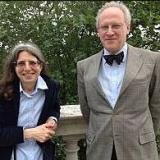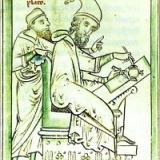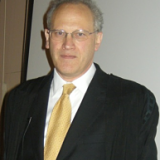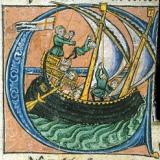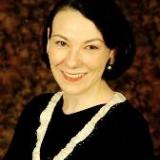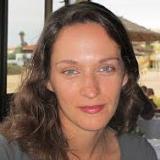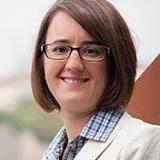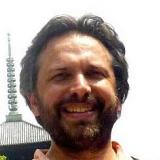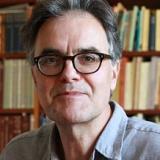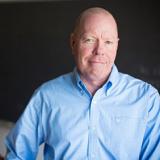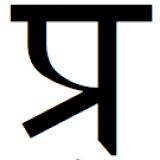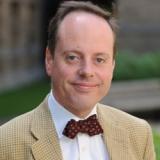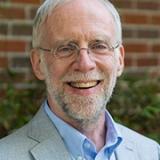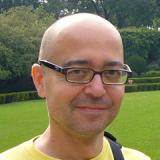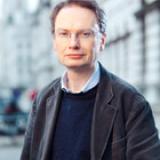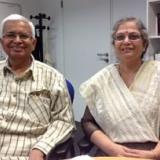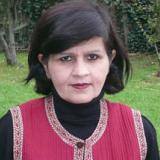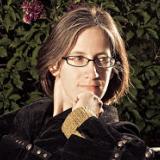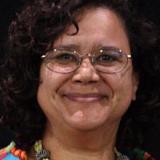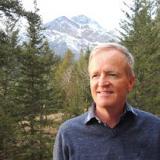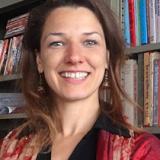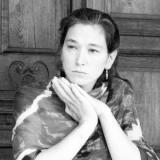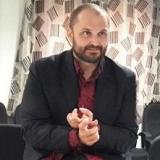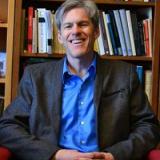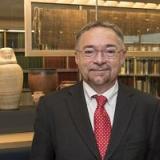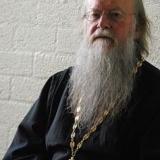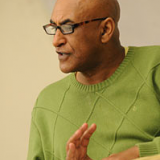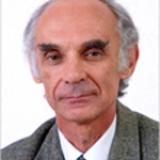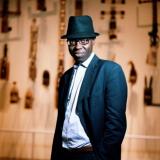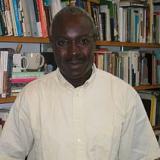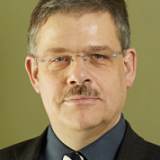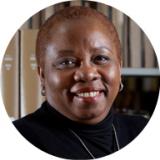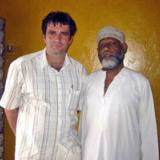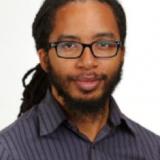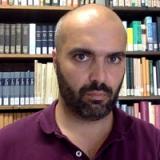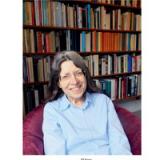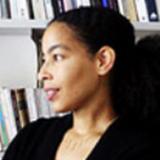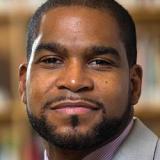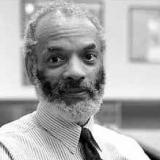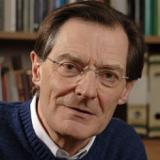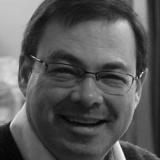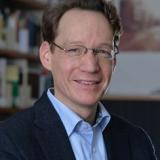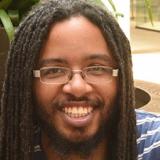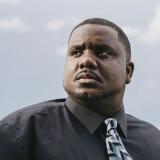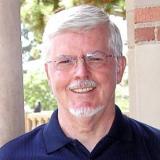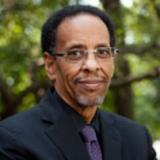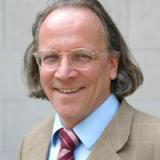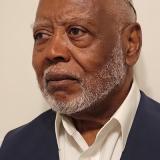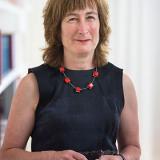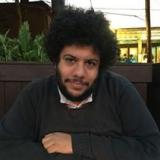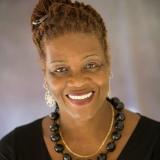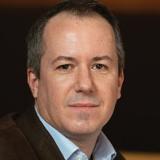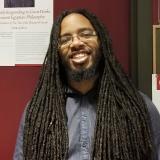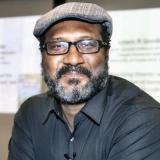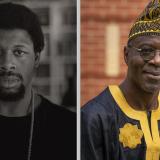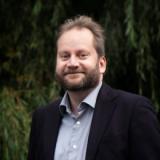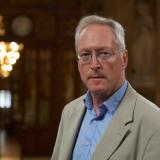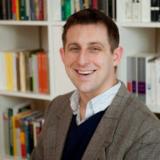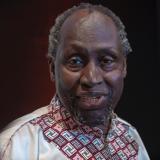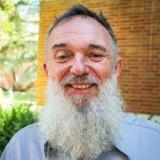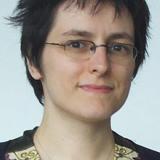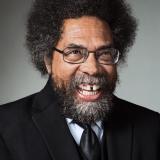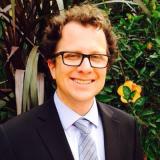Interviews
Posted on
Peter's colleague Professor MM McCabe joins him in the first interview of the series of podcasts, to talk about Heraclitus.
Posted on
World-leading expert Malcolm Schofield of Cambridge University speaks to Peter about the development of Presocratic philosophy, from the Milesians to Parmenides and the reactions he provoked.
Posted on
Peter's colleague Raphael Woolf joins him to discuss Socrates as he is portrayed by Plato: the gadfly of Athens. But was he an ascetic? And could it really be true that virtue is knowledge?
Posted on
What is Plato's understanding of knowledge, and how does he think that knowledge relates to virtue? Peter tackles these questions with his King's colleague MM McCabe in this interview.
Posted on
Peter talks to Fiona Leigh of University College London about Plato's Sophist, which revises the theory of Forms to explain how falsehood is possible.
Posted on
Frisbee Sheffield, an expert on Plato's Symposium and Phaedrus, chats to Peter about love and friendship in the erotic dialogues.
Posted on
Hugh Benson of the University of Oklahoma chats to Peter about Aristotle's views on philosophical method, and whether he practices what he preaches.
Posted on
Peter talks to Sir Richard Sorabji about Aristotle's physics, focusing on the definition of time and the eternity of the universe.
Posted on
Peter chats with Dominic Scott of the University of Virginia, and talks about Aristotle's audience, method and conclusions in the Nicomachean Ethics.
Posted on
Peter's colleagues MM McCabe and Raphael Woolf join him for a special 50th episode interview, to discuss Aristotle's reactions to his teacher Plato.
Posted on
James Warren of Cambridge University talks to Peter about Epicurus, his atomism, his hedonism and the Epicurean arguments against the fear of death.
Posted on
David Sedley of Cambridge University chats with Peter about the development of the Stoic school, from the early days to the imperial age.
Posted on
Peter chats about Seneca, Marcus Aurelius, and Epictetus with John Sellars, an expert on Roman Stoicism and the reception of Stoicism in the early modern era.
Posted on
Peter talks to Raphael Woolf about the method and philosophical allegiance of Cicero, focusing on the work On Ends (De Finibus).
Posted on
Leading Hellenistic philosophy scholar Tony Long talks to Peter about the self, ethics and politics in the Stoics, Epicureans and Skeptics.
Posted on
Jim Hankinson, a leading expert on philosophical themes in Galen, joins Peter to discuss this greatest doctor of the ancient world.
Posted on
Jan Opsomer helps Peter to understand principles, Plato interpretation, and Plutarch in a wide-ranging discussion of Middle Platonism.
Posted on
How did the mathematics of figures like Euclid and Archimides relate to ancient philosophy? Peter finds out in an interview with Serafina Cuomo.
Posted on
James Wilberding joins Peter to show that contrary to what is often claimed, Neoplatonists did make contributions to the philosophy of nature. Topics include Plotinus on the cosmos and Porphyry on embryology.
Posted on
Anne Sheppard discusses ancient aesthetics, touching on poetry, visual art and music in thinkers from Plato to Proclus.
Posted on
Dominic O'Meara speaks with Peter about political philosophy and mathematics in Neoplatonism.
Posted on
Sir Richard Sorabji, founder of the Ancient Commentators Project, joins Peter to discuss the history of ancient commentary on Aristotle.
Posted on
A special double interview with Caroline Humfress (Birkbeck College London) and Michael Trapp (King's College London) celebrates reaching 100 episodes by looking at the cultural status of philosophy in the ancient world.
Posted on
George Boys-Stones joins Peter to discuss philosophy in the Bible and the Greek Church Fathers.
Posted on
Peter speaks with Sarah Byers about the Stoic influence on Augustine's ethics and theory of action.
Posted on
In a final episode on Augustine, Charles Brittain joins Peter to discuss the theory of mind presented in "On the Trinity".
Posted on
John Marenbon joins Peter to discuss Boethius' solution to the problem of divine foreknowledge.
Posted on
A double dose of Peters, as Pormann joins Adamson to discuss medicine and philosophy in the Islamic world.
Posted on
Deborah Black joins Peter to talk about al-Farabi's innovations concerning knowledge and certainty.
Posted on
Peter is joined by Farhad Daftary, a leading expert on the Shiite group known as the Ismā'īlīs.
Posted on
Peter talks to leading Avicenna scholar Dimitri Gutas about Avicenna's sources, philosophical methods, and influence.
Posted on
Why did al-Ghazālī judge "the philosophers" to be apostates? Peter finds out from Frank Griffel.
Posted on
A special 150th double interview episode on the transmission of philosophy from Arabic into Latin.
Posted on
Averroes scholar Richard C. Taylor joins Peter to talk about Averroes' views on the relation between Islam and philosophy.
Posted on
Peter chats with Sarah Pessin about the Neoplatonism of Jewish philosophers such as Isaac Israeli, Ibn Gabirol, and Maimonides.
Posted on
Sarah Stroumsa tells Peter about Maimonides' cultural surroundings and attitudes towards philosophy and the Islamic tradition.
Posted on
Tamar Rudavsky joins Peter to talk about the two great medieval Jewish thinkers after Maimonides: Gersonides and Crescas.
Posted on
Leading scholar of medieval Jewish thought Gad Freudenthal joins Peter in a concluding episode on Andalusian thought.
Posted on
Peter is joined by Mohammed Rustom in a discussion about Sufi authors including Ibn 'Arabī, al-Qūnawī, and Rūmī.
Posted on
Robert Wisnovsky joins Peter to discuss the enormous body of unstudied philosophical commentaries in the later Eastern Islamic world.
Posted on
Sajjad Rizvi talks to Peter about Mullā Ṣadrā's views on eternity, God's knowledge and the afterlife.
Posted on
Anke von Kügelgen joins Peter to discuss developments over the last century or so, including attitudes towards past thinkers like Avicenna, Averroes and Ibn Taymiyya.
Posted on
We celebrate reaching episode 200 with a special double interview on the problem of defining medieval philosophy.
Posted on
Stephen Gersh (who was Peter's doctoral advisor!) joins him to discuss the sources and influence of Platonism in the Middle Ages.
Posted on
Anselm expert Eileen Sweeney discusses his approach to philosophy and the devotional aspect of his works.
Posted on
John Marenbon returns to the podcast to discuss Abelard's views on necessity and freedom.
Posted on
In this special episode, Peter chats with the hosts of the History of the Crusades, History of Byzantium, and British History podcasts.
Posted on
Andrew Arlig joins Peter to discuss medieval discussions of mereology (the study of parts and wholes).
Posted on
A discussion about Roman law and its reception in the medieval period, with ancient law expert Caroline Humfress.
Posted on
Kent Emery joins Peter to discuss the effects of monastic and university culture on medieval philosophy.
Posted on
Charles Burnett tells Peter about the role of magic in medieval intellectual life.
Posted on
Medieval ideas about what animals do and do not have in common with humans, and how we should treat them.
Posted on
Was medieval logic "formal"? Peter finds out from Catarina Dutilh Novaes.
Posted on
Therese Cory tells Peter what 13th century philosophers thought about self-awareness.
Posted on
An interview with Brian Black about the philosophical and social aspects of the Upaniṣads.
Posted on
Peter speaks to Rupert Gethin about the no-self theory, and its implications for Buddhist ethics and meditation practices.
Posted on
Scott MacDonald joins Peter to discuss Thomas Aquinas' views on human knowledge.
Posted on
An interview with Jessica Frazier about philosophical ideas and arguments in the Vedas, Upanisads and later Hindu texts.
Posted on
Does medieval art tell us anything about medieval theories of aesthetics? Peter finds out from Andreas Speer.
Posted on
An interview with Martin Pickavé on voluntarism and the interaction of will and intellect, according to Henry of Ghent.
Posted on
Mīmāṃsā expert Elisa Freschi speaks to Peter about philosophical issues arising from the interpretation of the Veda.
Posted on
Medieval discussions of the Trinity charted new metaphysical territory, as we see in this interview with Richard Cross.
Posted on
Francis Clooney joins us to discuss the religious and philosophical aspects of Vedānta.
Posted on
Peter hears about Duns Scotus' epistemology from expert Giorgio Pini.
Posted on
A leading expert on the founding text of Yoga tells us why, when, and by whom it was written, and what it has to do with modern day yoga practice.
Posted on
A conversation with Tom Pink about medieval theories of freedom and action.
Posted on
The First Family of Indian Epistemology joins us to discuss the theories and later influence of the Nyāya school.
Posted on
An interview with Susan Brower-Toland covering Ockham's views on cognition, consciousness, and memory.
Posted on
Monima Chadha takes Peter through Buddhist-Hindu debates over mind and self.
Posted on
Sara Uckelman soundly defeats Peter in the medieval logical game of "obligations."
Posted on
An interview with Monica Green reveals parallels between medicine and philosophy in the middle ages.
Posted on
A discussion with Jan Westerhoff, an expert on the great Buddhist thinker Nāgārjuna, dealing with the notion of emptiness, the tetralemma, and Nāgārjuna's reception in India and Tibet.
Posted on
Peter speaks to Jack Zupko about John Buridan's secular and parsimonious approach to philosophy.
Posted on
The medievals were too firm in their beliefs to entertain skeptical worries, right? Don't be so sure, as Peter learns from Dominik Perler.
Posted on
We're joined by Marie-Hélène Gorisse for a look at the Jain theory of knowledge.
Posted on
Graham Priest joins Peter to discuss non-classical logic and its connections with Buddhist patterns of reasoning.
Posted on
Martin Pickavé returns to the podcast to talk about theories of the emotions in Aquinas, Scotus and Wodeham.
Posted on
An interview about the status of nonhuman animals in ancient Indian philosophy and literature.
Posted on
Peter is joined by Isabel Davis to discuss marriage, sex and chastity in Chaucer, focusing on the Wife of Bath's speech.
Posted on
The host of the History of India podcast joins us for the final episode on India.
Posted on
Bob Pasnau joins Peter to discuss ideas about substance from Aquinas down to the time of Locke, Leibniz and Descartes.
Posted on
Three guests to celebrate 300 episodes! Rachel Barney, Christof Rapp, and Mark Kalderon join Peter to discuss the importance of ancient philosophy for today's philosophers.
Posted on
Peter King, Catarina Dutilh Novaes, and Russ Friedman discuss their approaches to medieval philosophy and its contemporary relevance.
Posted on
Egyptologist Richard Parkinson joins us to talk about the context and meaning of the Eloquent Peasant and other literary works of ancient Egypt.
Posted on
Peter is joined by Andrew Louth for a discussion of John of Damascus and his theological use of philosophy.
Posted on
Peter's twin brother Glenn Adamson discusses the philosophical implications of craft.
Posted on
Teodros Kiros discusses his work in political philosophy and the history of Ethiopian philosophical thought.
Posted on
Dominic O'Meara speaks to Peter about Michael Psellos, focusing especially on his political philosophy.
Posted on
Peter speaks to Souleymane Bachir Diagne about Islamic scholars in West Africa.
Posted on
A conversation with Sam Imbo on approaching oral traditions as philosophy and the Ugandan thinker and poet Okot p'Bitek.
Posted on
Katerina Ierodiakonou discusses Byzantine commentators on Aristotle, including Michael of Ephesus.
Posted on
Oliver Primavesi tells us how Greek manuscripts are used to establish the text of authors like Aristotle.
Prof Primavesi runs the Munich School of Ancient Philosophy together with Christof Rapp and Peter Adamson.
Posted on
An interview with Nkiru Nzegwu on matriarchy, sexuality, and gender fluidity in Africa (with a quick chat at the end about her work on African art).
Posted on
Historian Judith Herrin joins us to talk about competition and mutual influence between Islam and Byzantium.
Posted on
An interview with Kai Kresse (pictured here with Ustadh Mahmoud Mau) who discusses his efforts to do "anthropology of philosophy" on the Swahili Coast.
Posted on
Co-host Chike Jeffers and Peter chat about the themes and questions raised by the podcast so far.
Posted on
The series on Byzantium concludes as guest Michele Trizio discusses the mutual influence of Byzantium and Latin Christendom.
Posted on
Justin E.H. Smith joins us to discuss Anton Wilhelm Amo against the background of ideas about race in early modern philosophy, including Leibniz.
Posted on
Jill Kraye returns to the podcast to discuss the nature of humanism, its relation to scholasticism, and its legacy.
Posted on
An interview with Sabrina Ebbersmeyer about the relation of emotion to reason and the body, and panpsychism, in the Renaissance.
Posted on
An interview with Doris Garraway on the background, intellectual basis, and legacy of the Haitian Revolution.
Posted on
An interview with James Sidbury about the emergence of a self-conscious African identity in the diaspora.
Posted on
An interview with Denis Robichaud on how, and why, Plato was read in the Italian Renaissance.
Posted on
Melvin Rogers joins us to discuss David Walker, Maria Stewart, and Hosea Easton.
Posted on
An interview with Cecilia Muratori, an expert on the surprisingly modern ideas about non-human animals that emerged in the Renaissance.
Posted on
Wilson Moses speaks to us about his research into early black nationalism, with reference to Crummell, Douglass, and others.
Posted on
Leading Machiavelli scholar Quentin Skinner joins Peter to discuss morality, history, and religion in the Prince and the Discourses.
Posted on
An interview with David Lines on the Renaissance reception of Aristotle's Nicomachean Ethics.
Posted on
Brittney Cooper on activists connected to the National Association of Colored Women, including Fannie Barrier Williams, Mary Church Terrell, and Ida B. Wells.
Posted on
An interview with Dag Nikolaus Hasse on the Renaissance reception of Averroes, Avicenna, and other authors who wrote in Arabic.
Posted on
Co-host Chike joins Peter to look back at series two and ahead to series three.
Posted on
An interview with Guido Giglioni, who speaks to us about the sources and philosophical implications of medical works of the Renaissance.
Posted on
We chat with Tommy Curry about African-American thought between the turn of the century and the Harlem Renaissance.
Posted on
Brian Copenhaver joins us to explain how Ficino and other Renaissance philosophers thought about magic.
Posted on
Vanessa Wills speaks to us about Marx and his Africana legacy, with a special focus on black women Marxists.
Posted on
For our finale of the Italian Renaissance series we're joined by Ingrid Rowland, to speak about art, philosophy, and persecution in Renaissance Rome.
Posted on
An interview with Michael Dawson, who explains Marcus Garvey's black nationalism and how this and other political ideologies, like socialism and liberalism, have fared from the time of Garvey down to the present day.
Posted on
Learned ignorance, coincidence of opposites and religious peace: Paul Richard Blum discusses the central ideas of Nicholas Cusanus.
Posted on
Leonard Harris explains how Locke's value theory was the basis for his aesthetics and theories of democracy and race.
Posted on
How radical was Luther? We find out from Lyndal Roper, who also discusses Luther and the Peasants' War, sexuality, anti-semitism, and the visual arts.
Posted on
Guest Liam Kofi Bright discusses Du Bois' ideal of value-free science and the place of science within his wider thought.
Posted on
An interview with Helen Hattab on the scope and impact of scholastic philosophy among Protestants.
Posted on
Interview guest Carole Boyce Davies joins us to talk about the radical ideas of Claudia Jones.
Posted on
John Sellars returns to the podcast to discuss Lipsius' work on Seneca and the early modern Neo-Stoic movement.
Posted on
An interview about the role of the emotions, including anger and feelings of dignity, in the non-violent protest campaign of King.
Posted on
Comets! Magnets! Armadillos! In this wide-ranging interview Lorraine Daston tells us how Renaissance and early modern scientists dealt with the extraordinary events they called "wonders".
Posted on
Chike joins Peter to look back at our coverage of Africana philosophy in the first half of the 20th century.
Posted on
Peter celebrates reaching 400 episodes together with the hosts of three great philosophy podcasts: Elucidations, Hi-Phi Nation, and the Unmute Podcast (Matt Teichman, Barry Lam, and Myisha Cherry).
Posted on
We're joined by a leading Fanon expert to talk about a range of themes in his work: Negritude, psychiatry, and violence.
Posted on
A chat with Ramus expert Robert Goulding on the role of mathematics in Ramist philosophy, not to mention some juicy academic quarrels in Paris.
Posted on
An interview on the nature of religious tolerance, and the forms it took during the Reformation and in the thought of early modern thinkers like Locke and Leibniz.
Maria Rosa Antognazza is Professor of Philosophy at King's College London.
Posted on
A chat with Ann Blair about the "Theater of Nature" by Jean Bodin, and other encyclopedic works of natural philosophy. (Pictured: Prof Blair holding the annotated copy of Bodin's Theatrum she describes in the episode.)
Posted on
Two scholars of the same name join us to shed further light on freedom fighter and political theorist Amílcar Cabral.
Posted on
No doubt that we're in good hands with interview guest Henrik Lagerlund, who brings his expertise in the history of skepticism to bear on the French Renaissance. Including a look ahead to Descartes!
Posted on
A leading expert on the history of the Reformation joins us to explain the very different stories of England and Scotland in the 16th century.
Posted on
We're joined by Patrick Gray to discuss Shakespeare's knowledge of philosophy, his ethics, and his influence on such thinkers as Hegel.
Posted on
The great Kenyan writer Ngũgĩ wa Thiong'o joins us to speak about his career, his influences, and the power and politics of language.
Posted on
The author of an important book on Glissant joins us to talk about his approach to this major Caribbean thinker.
Posted on
A discussion of the history and philosophical significance of scholasticism from medieval times to early modernity, and even today.
Posted on
An expert on Renaissance alchemy tells us how this art related to philosophy at the time... and how she has tried to reproduce its results!
Posted on
Cornel West joins us to look back on the development of his thought and the many authors who have inspired him.
Posted on
How Africana philosophy looked to a young Chike Jeffers, coming into the field in the early 21st century.
Posted on
In this interview we learn about the main issues in modern-day philosophy of disability, and the relevance of this topic for the European encounter with the Americas.
Posted on
Co-host Karyn introduces herself to the listeners and talks about the challenges of tackling classical Chinese philosophical texts.








